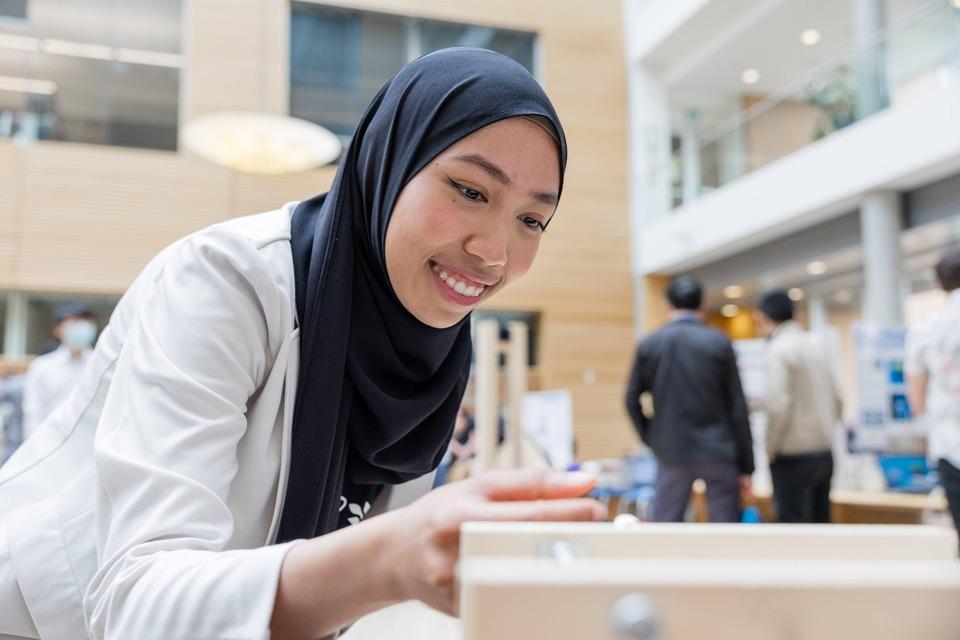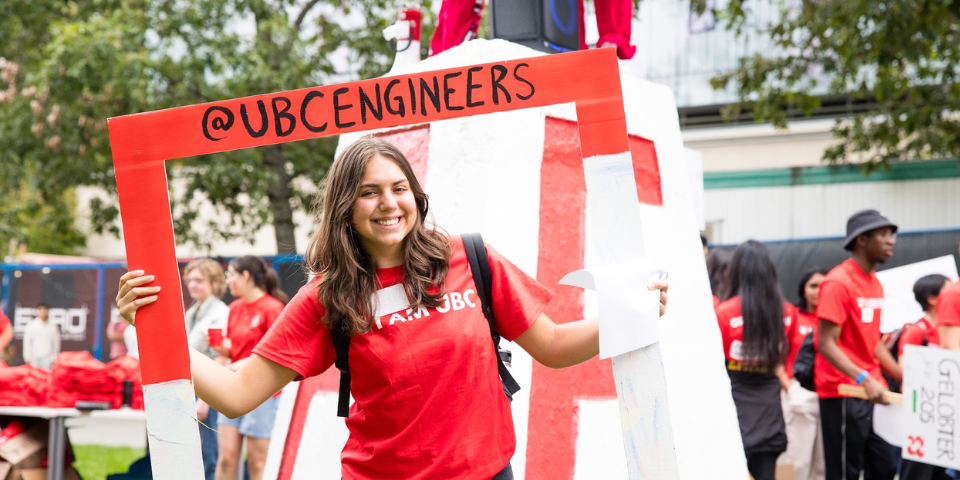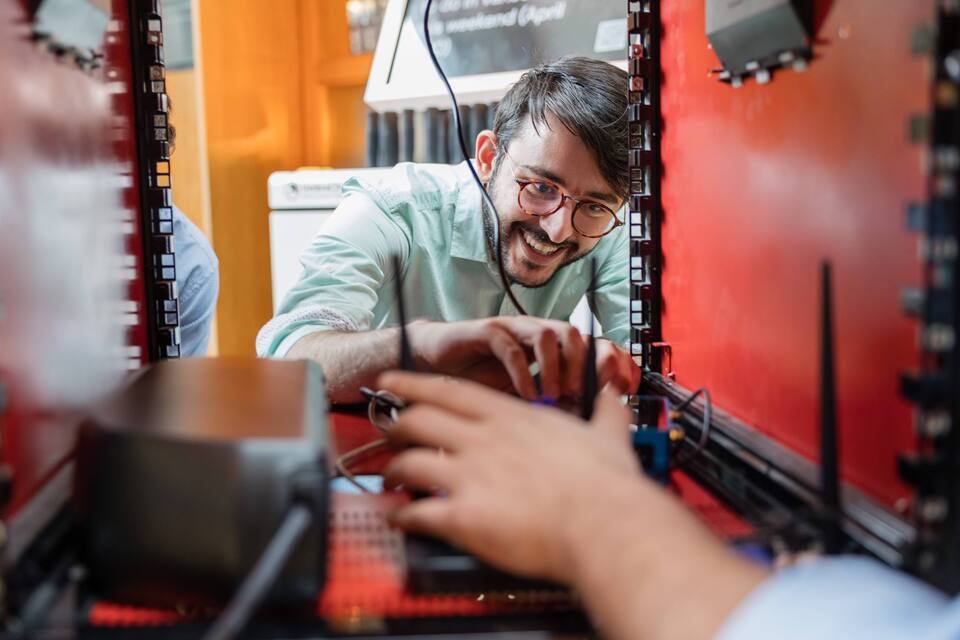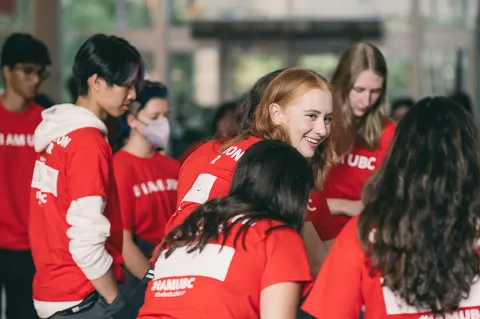
There are so many reasons to study engineering – from being able to work in a well-paying job right after graduation to applying your knowledge and critical-thinking skills to make things better. Here’s another reason to add to the long list: the incredible community you’ll join from the very first day you step on campus.
Group projects promote connections
Starting in your first year, many of your class assignments will be group-based design projects. You will be part of a team of students asked to come up with a solution for an open-ended problem. You might meet your new best friend through these group projects or just make a connection with a new study partner.
“One of the projects you do in first-year engineering is to build a cardboard chair,” says alum Divya Budihal, who is now a robotics and autonomy software engineer at Zipline (a company that uses drones to deliver medical projects). “Every single person on my team ended up going into a different specialization, which I think was our superpower! We won an award for best design and briefly considered whether we should launch our chair as a product. I became very close with one team member who also shared my passion for global development and we worked on a start-up idea together for a few years afterwards.”
Another advantage of this focus on group work is that you’ll be learning skills for life.
You’ll learn how to work effectively in a team, building on each member’s strengths and integrating the diverse perspectives of your peers to solve engineering challenges that affect us all.
As Biomedical Engineering student Madhini Vigneswaran says: “Group projects are very important – it’s how things get done in the real world! In biomedical engineering, you have to connect and work with medical professionals, as well as engineers and other. Knowing how to communicate, be part of or lead a team, resolve conflicts – all those skills are really enhanced over your engineering degree.”
Foundation year Cardboard chair project
Zipline Biomedical Engineering

Learn from others on design teams
Design teams are a great way to meet people and learn from others – and UBC has more student engineering design teams than any university in Canada. Whether you’re interested in aircraft or cars, robotics or sustainability, there will be a team for that.
Teams are entirely student run. And while they can be a lot of work, they are an incredible way to dive into an area you are passionate about (and perhaps travel internationally to enter a competition, as well!).
Alyona Glazyrina, for example, says that her experience as part of the UBC Mars Colony design team was the highlight of her time at UBC.
“In second year, I had to learn computational fluid dynamics for the Mars Colony work, even though you don’t normally study this until fourth year,” she says. “Getting to preview some of that material and learn from senior engineering students was really great. Now that I am captain of the design team, I am sharing my knowledge with others.”

Setting you up for a successful career
Chemical Engineering alum Erin Madro says that learning from your peers and learning how to work in a group are some of the most important skills she developed at UBC.
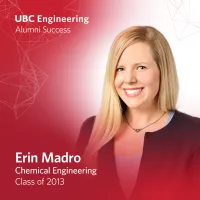
“What I loved about the engineering program is that it’s far more collaborative than it is competitive,” she says.
“The program is designed to push a huge volume of information at you and the only way to get through it is by working with others and leaning on each other for support. You don't realize how important that is until later on in life when your professional career is all about working together with people in teams.”




